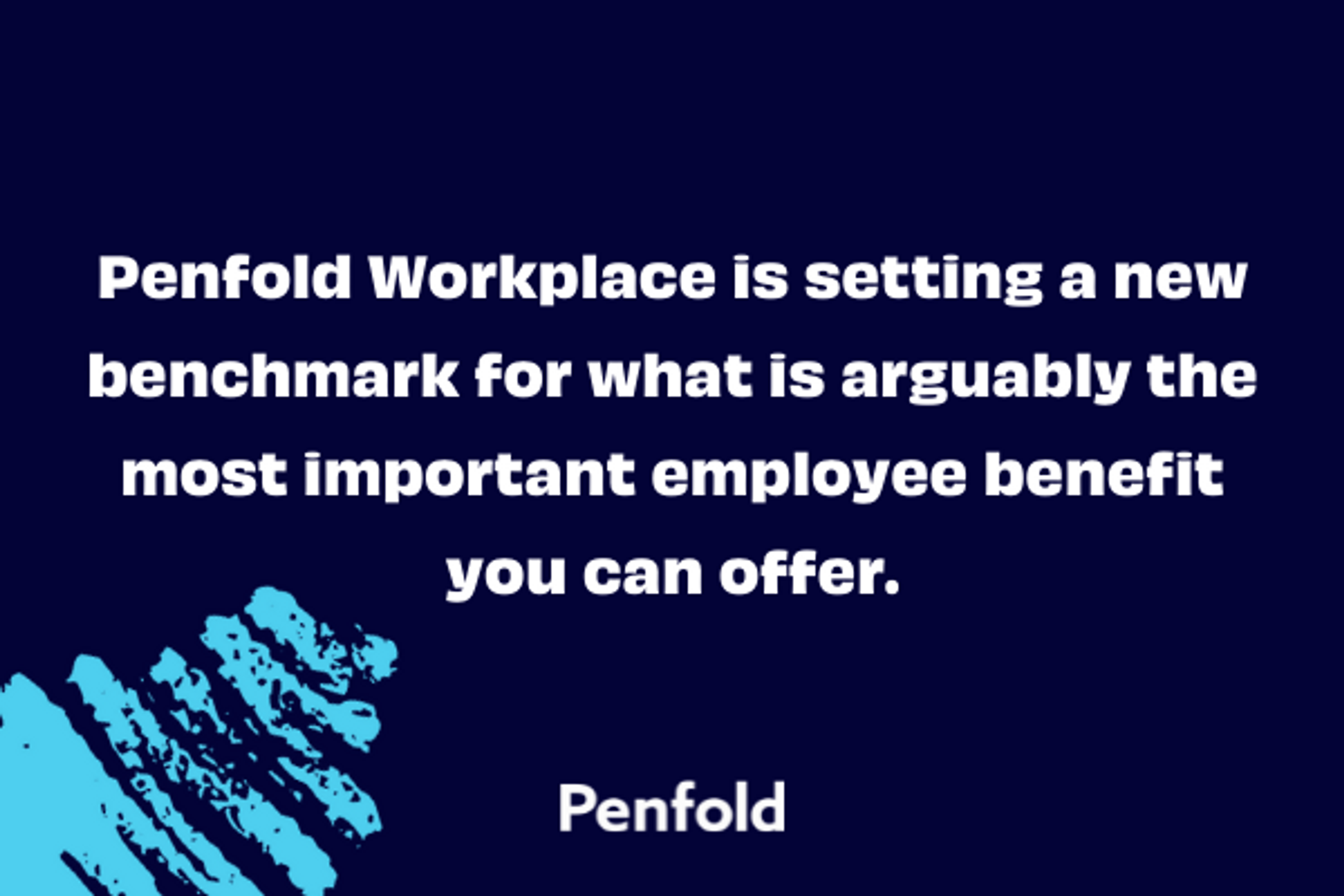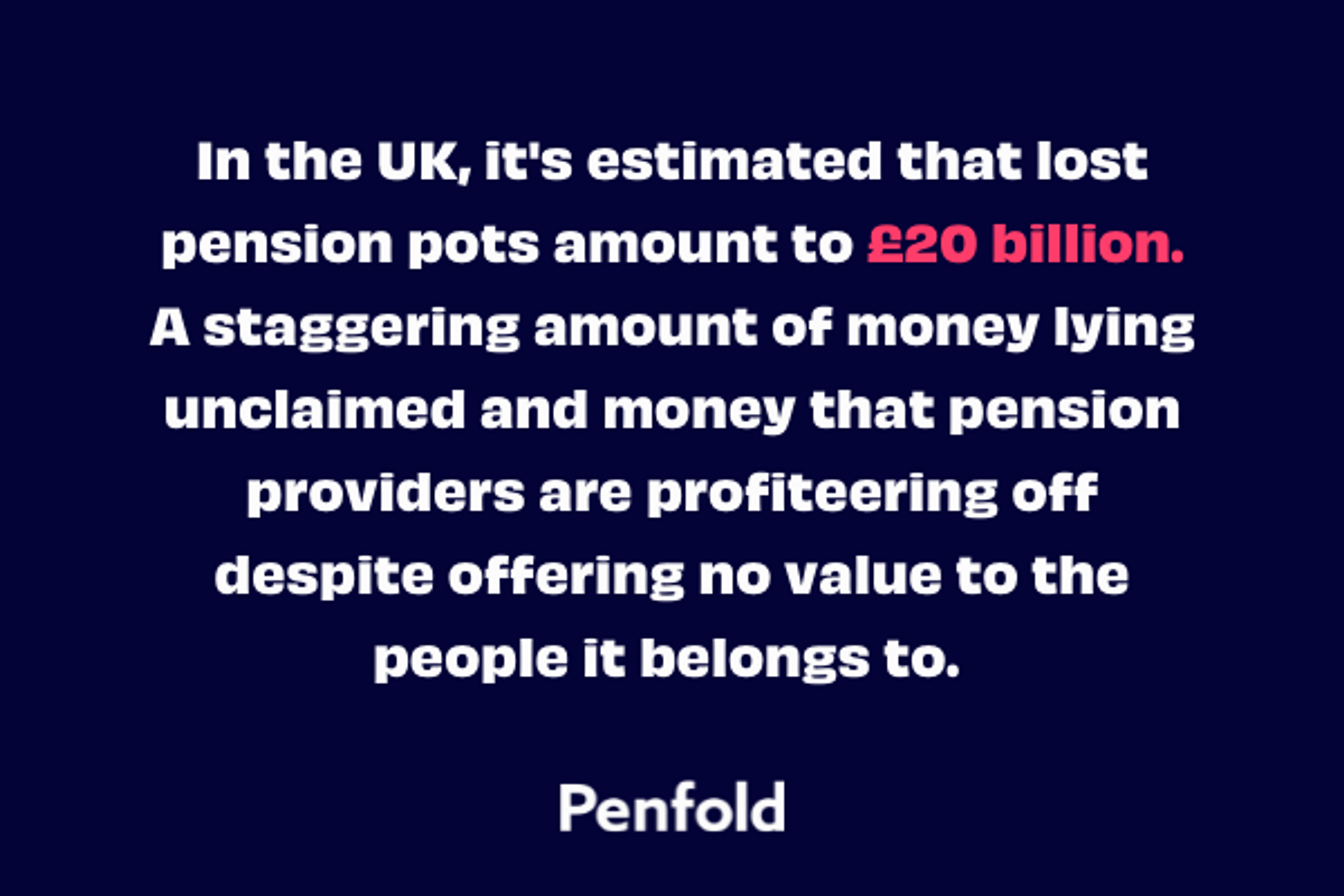Why workplace pensions are terrible (and how to make them better)
- By
- Pete Hykin

On my third attempt at setting up a workplace pension, the penny well and truly dropped: workplace pensions are terrible. They’re terrible on multiple levels - terribly inefficient, terribly un-engaging, often deliver terrible returns and terribly bad for team morale. I could go on.
In principle, we all agree that auto-enrolment is a wonderful idea and a fantastic example of a government initiative. Of course businesses should support society in saving for life beyond work, and no one wins if we have a steady stream of retirees who haven’t got enough to support themselves.
In practice, auto-enrolment is falling massively short of achieving its original aim. The consequence of this failure is that an entire generation of savers won’t be prepared for life after work.
In this post, I lay out the key reasons workplace pensions are under-delivering and show how Penfold Workplace is setting a new benchmark for what is arguably the most important employee benefit you can offer.

Workplace pensions are a HR team’s nightmare
The fact is that pension providers offer very little support to employers on implementing a workplace pension. Instead, the onus lies wholly on the employer to digest the compliance requirements of auto-enrolment and make sure they are implemented correctly. This includes wading through the jargon that includes:
- Opt-ins
- Opt-outs
- Non-eligible jobholders
- Postponement periods
- Pensionable service
- Defined contribution
- Total pensionable earnings
- Paid contribution schedules
And when you’ve finally got the scheme up and running, your HR team becomes the in-house pension experts for the whole team, eating into valuable time that could be spent on other important and higher impact HR and People initiatives.
The crux of the issue is that HR teams often find themselves answering complex pension questions, which they may not be qualified to do and should be directed to the pension provider. Unfortunately, pension providers make it almost impossible to get in touch with them, so the vicious cycle persists. A pension for HR teams can help solve these problems.
They’re not suited for the 21st Century career
The old school pension companies were set up when the average worker held one job at the same company for 40 years and then retired. The modern world of work looks very different to this picture. The average person will change jobs 11 times in their lifetime, which means they could potentially have 11 different workplace pension pots across multiple providers.*
This creates a myriad of issues:
- What to do with your pot when you leave a role?
- How to transfer it?
- How to keep your details up to date through address changes, name changes, and everything else that happens in the course of life over 50 years?
In the UK, it's estimated that lost pension pots amount to £20 billion, a staggering amount of money lying unclaimed and money that pension providers are profiteering off despite offering no value to the people it belongs to.**

As we look to the future, the gig economy is gaining momentum. Employment trends now indicate that an average career will go through self-employment and full-time employment periods, with side hustles and cross-border assignments thrown in the mix. In their current form, pensions are growing more outdated with each passing day.
The major providers have failed to engage the saver
Failing to engage the saver is arguably the most significant shortcoming of the current state of auto-enrolment. Auto-enrolment was designed to get more people saving for their future but is doing the exact opposite. With log-in portals that hail from the 90s, a letter sent to an old address once per year, and ludicrously long customer service SLAs. It's no wonder savers feel overwhelmed by admin, jargon, and outdated systems, putting them off pensions for life.
Sadly, this is just one example of outdated practices that prevent people from feeling in control and engaged in saving for their future. We need to recognise that consumers have grown accustomed to the new wave of fintech products that democratised previously cumbersome financial processes. In the age of Xero and Monzo, how can we expect consumers to put up with the analogue practices of the old-school pension providers?
Likewise, the pension industry as a whole has totally failed to help savers understand that pensions aren’t an abstract black box of cash, but they’re a vehicle to make an impact on the world in line with your values. The emerging popularity of sustainable pension funds demonstrates that making sustainable investment decisions should be used as a key hook for getting more climate-conscious savers engaged with their pension.
The system is set up to under-deliver on fund performance
When you really get under the hood of what the major providers are offering in terms of plans and fees, you start to see that their crime isn’t just mediocrity. These companies are actively screwing over every day savers with punitive fees, risk-averse investment strategies leading to bad returns and a failure to help savers understand and take advantage of tax breaks.
The most recent example of this comes from NEST, the largest, government backed auto-enrolment provider. NEST adopts an investment strategy that minimises risks for younger savers, going against conventional investment wisdom. Whilst this does mitigate against the risk of savers being put off pensions by volatility in fund growth, it also reduces their ability to make significant gains early on in their pension journey.
Ultimately, providers need to do more to educate savers on the principles of maximising growth from their pension and give them the tools to make the right decisions for their specific circumstances.
The most expensive employee benefit that has the least impact on engagement
Finally, workplace pensions are a significant cost line on a company's P&L, at least 3% of salaries, and there's no option for not paying it. Yet, this significant cost is not being used for the proper purpose, i.e. a demonstration of commitment to the future financial wellbeing of your employees. The lack of communication or transparency around the investment employers are making on their employees is a catastrophic wasted opportunity to attract and retain top talent. For such a costly employee benefit, employers are gaining hardly any value from it, and their attempts to do the right thing by their staff go largely unnoticed. It's pretty remarkable that companies who value innovation, impact and progress are applying none of these principles to their pension schemes.
As you can see… workplace pensions are terrible. But they needn’t be terrible for much longer.
Enter Penfold Workplace.
We’ve reimagined a workplace pension from First Principles, doing away with legacy systems and processes and building a product that makes sense for the way we live and work today.
In practice, this means a pension that effectively lives on your phone, just like a current account.
- A pension that feels like a benefit and not a bore.
- A pension that maximises value for the individual and the employer.
- A pension that makes auto-enrolment feel like a piece of cake.
- A pension that comes with human support whenever you need it.
- A pension that feels as innovative as you do.
- A pension that gives you the power to make a difference in the world.
- And finally, a pension that you can easily take with you, whichever direction your career takes.
We‘re on a mission to transform workplace pensions for the 21st Century and in doing so, deliver financial wellbeing for all. If this sounds like something you’d like for yourself or for your team, please:
- Request a free call and a member of my team will be happy to tell you more, or
- Email me directly pete@getpenfold.com, I'd be happy to have a conversation
* 'Meeting future workplace pension challenges: Improving transfers and dealing with small pension pots', DWP, December 2011
** Thomas, Holly. 2021. 1.6M pensions are missing: it's time to track down yours, The Times, Available at: https://www.thetimes.co.uk/article/1-6m-pensions-are-missing-its-time-to-track-down-yours-htg99269d

Pete Hykin
Penfold Co-CEO and Co-Founder